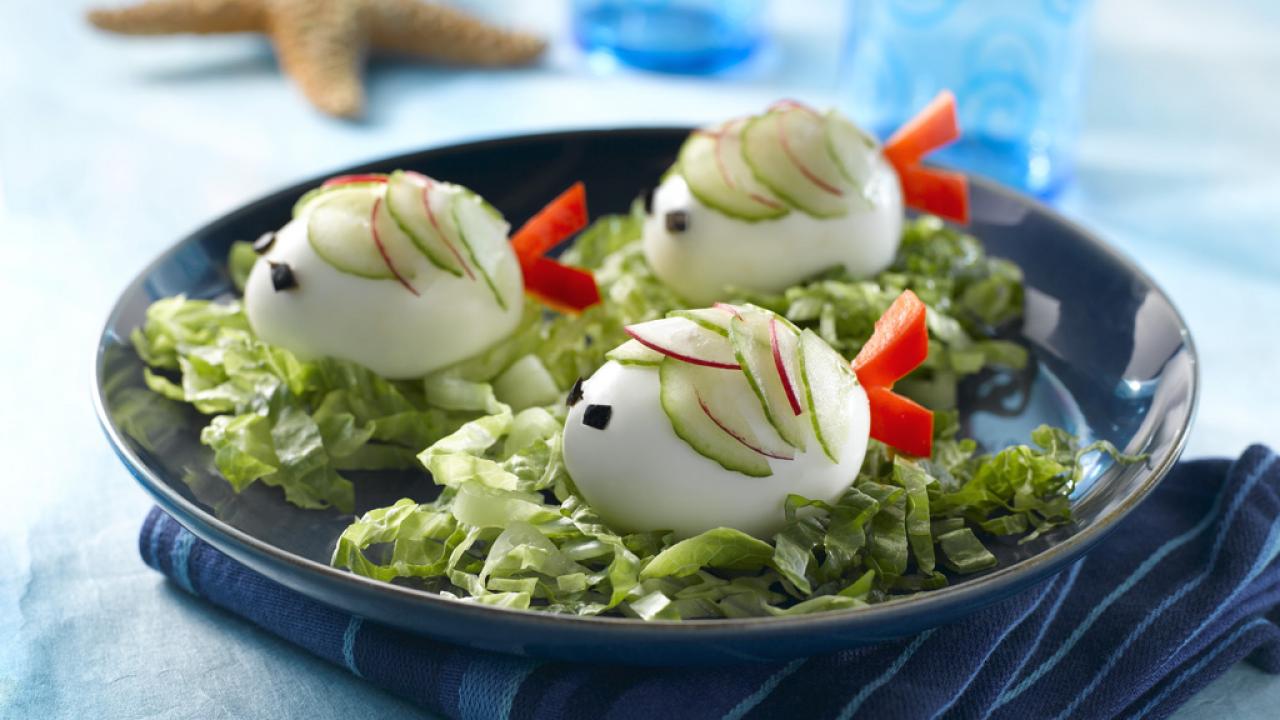Eggs are a nutritional powerhouse for toddlers, providing a wide range of essential nutrients. They are a rich source of protein, vitamins A, D, and B12, and minerals like iron, zinc, and selenium. Incorporating eggs into your child’s diet can contribute to their overall health and development.
Cooking eggs properly for toddlers is crucial to ensure their safety. Avoid serving raw or undercooked eggs, as they may contain harmful bacteria. Instead, opt for fully cooked eggs, such as hard-boiled, scrambled, or omelets.
Health Benefits

Eggs are a nutritional powerhouse for toddlers, providing an array of essential vitamins and minerals that contribute to their overall health and well-being.
Eggs are a rich source of protein, which is vital for muscle growth and development. They also contain high levels of choline, a nutrient crucial for brain development and cognitive function.
Essential Vitamins and Minerals
- Vitamin A: Essential for vision, immune function, and skin health.
- Vitamin B12: Plays a vital role in red blood cell production and nerve function.
- Vitamin D: Supports bone health and immune system function.
- Iron: Prevents anemia and supports oxygen transport throughout the body.
- Zinc: Supports immune function and wound healing.
Incorporating eggs into a toddler’s diet helps ensure they receive a balanced intake of these essential nutrients, promoting optimal growth, development, and overall well-being.
Safety Considerations

Ensuring the safety of eggs for toddlers is paramount. Thorough cooking eliminates potential hazards associated with raw or undercooked eggs.
Safe Egg Preparation and Storage
- Cook eggs thoroughly until both the yolk and white are firm. Avoid runny yolks or whites.
- Store eggs in the refrigerator at a temperature below 40°F (4°C) for up to 45 days.
- Discard any cracked or dirty eggs.
Risks of Undercooked or Raw Eggs
- Salmonella: Undercooked eggs can harbor Salmonella bacteria, which can cause food poisoning with symptoms like diarrhea, vomiting, and fever.
- Biotin deficiency: Raw egg whites contain a protein called avidin, which binds to biotin (vitamin B7) and prevents its absorption, leading to biotin deficiency.
- Allergic reactions: Some toddlers may be allergic to eggs, which can cause reactions ranging from mild rashes to severe anaphylaxis.
Easy and Quick Recipes
Cooking eggs for 2-year-olds should be a fun and rewarding experience. With a few simple ingredients and a little creativity, you can create delicious and nutritious meals that your toddler will love.
Step-by-Step Recipes
Here are some easy and quick egg recipes that are perfect for 2-year-olds:
| Recipe Name | Ingredients | Cooking Time |
|---|---|---|
| Scrambled Eggs | – 2 eggs- 1/4 cup milk- Salt and pepper to taste | 5 minutes |
| Omelet | – 2 eggs- 1/4 cup chopped vegetables (such as bell peppers, onions, or mushrooms)- 1/4 cup shredded cheese | 10 minutes |
| Hard-Boiled Eggs | – 6 eggs- Cold water | 12 minutes |
| Deviled Eggs | – 6 hard-boiled eggs- 1/4 cup mayonnaise- 1 tablespoon mustard- Paprika for garnish | 15 minutes |
| Egg Salad Sandwich | – 6 hard-boiled eggs- 1/4 cup mayonnaise- 1/4 cup chopped celery- 1/4 cup chopped onion- Salt and pepper to taste- 2 slices of bread | 15 minutes |
Creative Presentation Ideas
Eggs are a versatile food that can be prepared in various ways, but presentation is key when it comes to toddlers. Creative and visually appealing presentations can make eggs more enticing and encourage toddlers to eat them.
Here are some creative presentation ideas for eggs:
Cookie Cutters
- Use cookie cutters to cut eggs into fun shapes, such as stars, hearts, or animals.
- This adds a playful element and makes the eggs more visually appealing.
Colorful Garnishes
- Add colorful garnishes to the eggs, such as chopped vegetables, herbs, or grated cheese.
- This adds a pop of color and makes the eggs more visually appealing.
Presentation as Characters
- Use food markers or edible decorations to create fun characters or faces on the eggs.
- This can make the eggs more engaging and interactive for toddlers.
Creative presentation can enhance the overall dining experience for toddlers and make eggs more appealing. By using these ideas, you can make eggs a fun and enjoyable part of your toddler’s diet.
Egg-Based Meal Options
Eggs offer a versatile and nutritious base for meals throughout the day. Their adaptability makes them a convenient option for busy families.
Breakfast
- Scrambled eggs with whole-wheat toast and fruit.
- Omelets with cheese, vegetables, or meat.
- Hard-boiled eggs with yogurt and berries.
Lunch
- Egg salad sandwiches on whole-wheat bread with lettuce and tomato.
- Deviled eggs as a side dish with grilled chicken and vegetables.
- Pasta salad with boiled eggs, vegetables, and a light dressing.
Dinner
- Quiche with vegetables, cheese, and eggs.
- Stir-fries with scrambled eggs and vegetables.
- Egg drop soup with noodles and vegetables.
Eggs’ versatility extends beyond these basic meals. They can be incorporated into casseroles, soups, salads, and even baked goods. Their nutritional value and adaptability make them a valuable addition to any child’s diet.
Closure
Experimenting with different egg recipes can make mealtimes fun and exciting for your toddler. By following the safety guidelines, you can create nutritious and visually appealing dishes that will delight your little one and support their growth and well-being.
Q&A
What are some creative ways to present eggs to toddlers?
You can use cookie cutters to create fun shapes, such as stars or animals. Add colorful garnishes like chopped vegetables or fruit to make the eggs more visually appealing.
Can I give my 2-year-old raw eggs?
No, it is not recommended to give raw eggs to children under the age of 5. Raw eggs may contain harmful bacteria that can cause foodborne illnesses.
How often can I feed my toddler eggs?
Eggs can be incorporated into your toddler’s diet several times a week. However, it is important to vary their protein sources and offer a balanced diet that includes other nutrient-rich foods.
